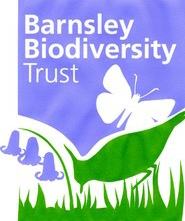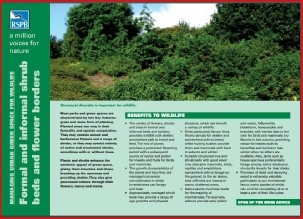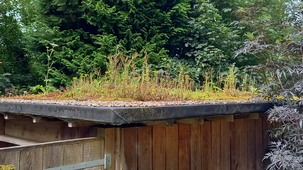

Biodiversity
Action
Plan
Flower and shrub beds with annual and/or perennial flowering plants provide nectar and pollen for a range of insects if the right types of flowers and shrubs are used.
A mix of plants which flower in spring, summer, autumn and even winter provides pollen and nectar year round, with seeds and berries available for birds and other wildlife during summer and winter.
However the richness of the wildlife depends on the choice of planting and the ways in which it is managed.
RSPB: Urban Advice Pack
A number of books and online material also offer good advice on wildlife gardening. Here are some …
RHS: Encourage wildlife to your garden
The RHS also publish lists of suitable plants for wildlife gardens. See above link.
Wildlife Trusts and RHS: www.wildaboutgardens.org.uk
RSPB: Creating a wildlife-friendly garden
Buglife: Wildlife Gardening
Butterfly conservation: Wildlife gardening
See also other sections of this biodiversity plan. This includes a page on planting colourful ‘meadow’ seed mixes in parks, grounds and gardens, and alongside roads. This has become popular in recent years.
Management of flower beds and shrubs for wildlife
Native plants are good for invertebrates and the wildlife that feeds on them; however some non-native species are also beneficial and often expand the flowering and fruiting seasons.
A wider range of pollinating insects benefit from a plant mix of varying depths and shapes of flower heads; insects however find it difficult to get nectar from ‘showier’ flowers of modern cultivars so single bloomed varieties of flowering plants give the best access. Some insects also need specific food-plants in their larval stage, having these plants nearby will lead to their presence.
Plants can also be chosen and managed to provide a varied heights and structure to help with shelter, over-wintering, nesting and foraging. Plant stems that have died back in autumn provide places, if kept, where beneficial insects such as ladybirds can overwinter.
Pesticides and herbicides should be reduced to a minimum or stopped.
Dead and decaying wood is worth keeping; many species rely on it for completing at least some of their life cycles. Its presence will also attract birds such as woodpeckers, nuthatch and tree creepers.
In addition wildlife need access to water and the presence of water in gardens will boost the numbers and range of wildlife species there.

The RSPB Advice Sheet on Formal and Informal shrub beds and flower borders is published within its urban advice pack:


Borders and Beds